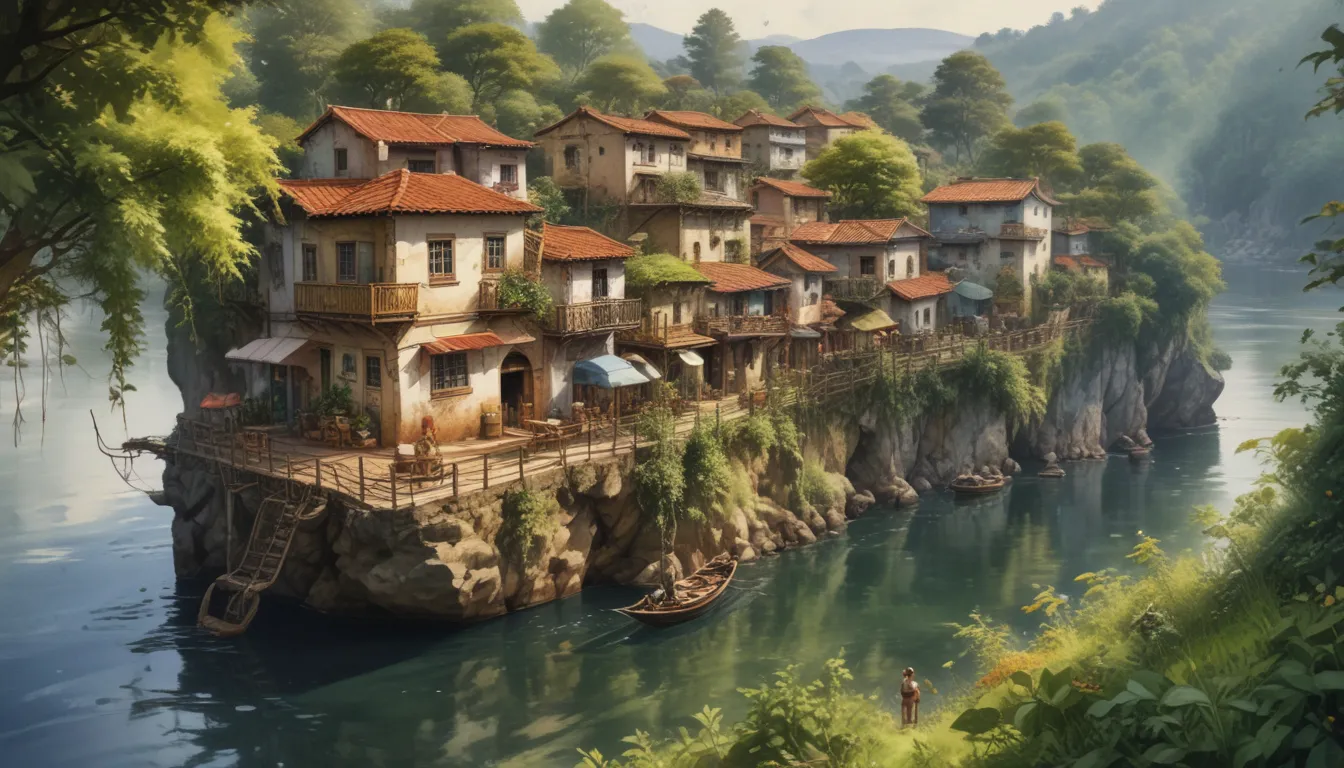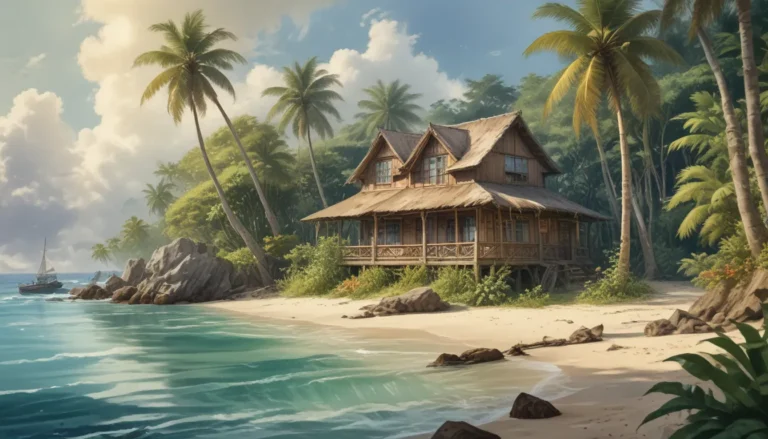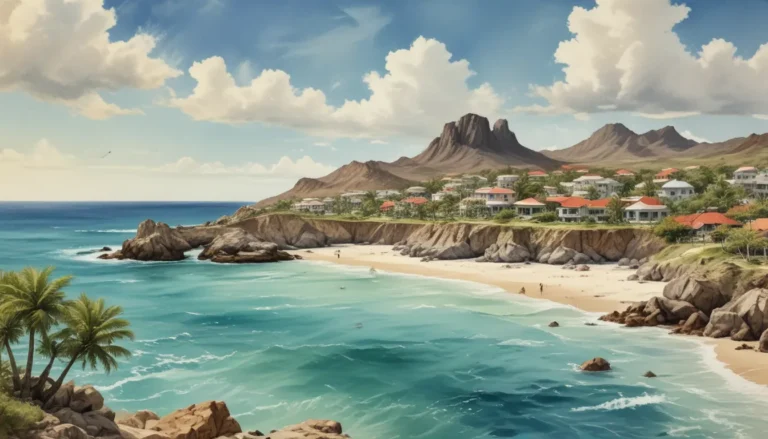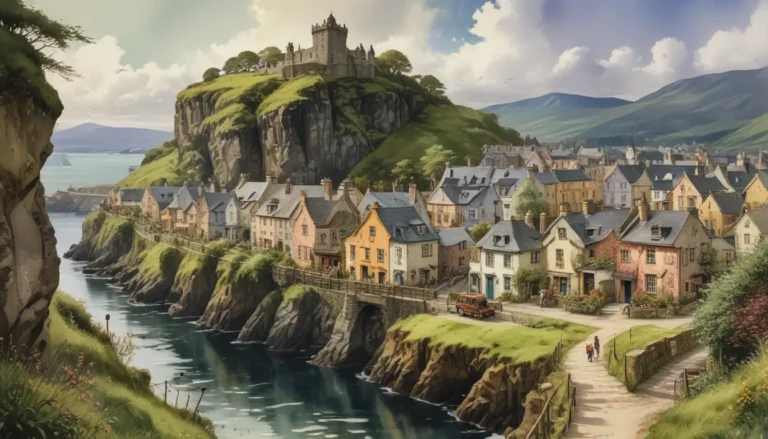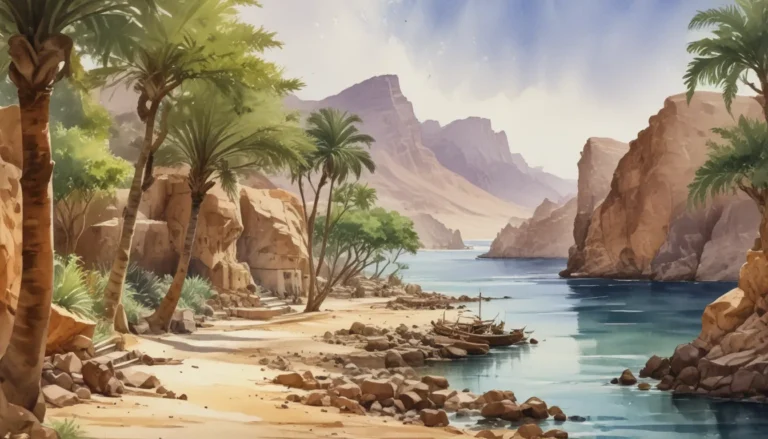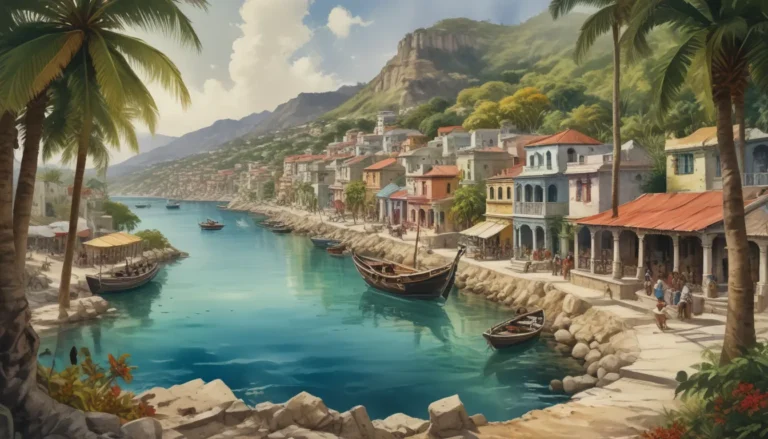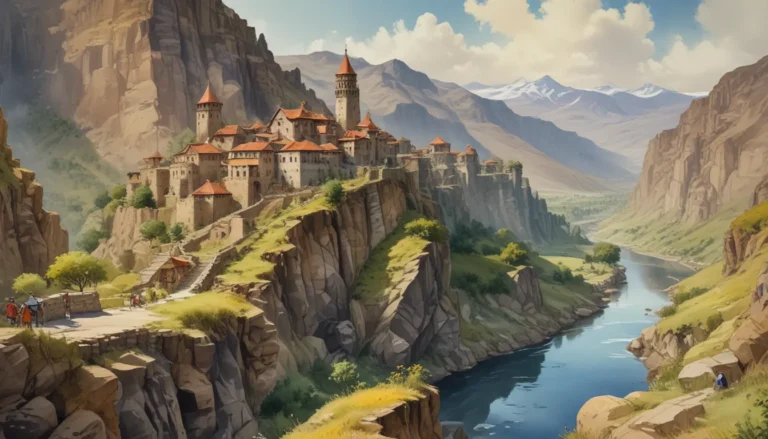The images in our articles are for illustrative purposes only and may not exactly match the content. They are intended to capture your interest and complement the text, not to replace it.
Are you ready to embark on a journey of exploration through the captivating country of Guinea in West Africa? With its rich culture, diverse landscapes, and vibrant people, Guinea is a treasure trove of unique experiences waiting to be discovered. Let’s delve into 39 fascinating facts about Guinea that will give you a deeper understanding of this remarkable nation. From its history and geography to its traditions and cuisine, Guinea has something for everyone to enjoy. Join us as we uncover the wonders of Guinea!
Unveiling the Beauty of Guinea
Guinea, situated on the western coast of Africa, offers an enchanting experience with its stunning coastline along the Atlantic Ocean. Bordered by countries such as Sierra Leone, Liberia, Ivory Coast, Mali, Senegal, and Guinea-Bissau, Guinea boasts a strategic location that has influenced its rich history and vibrant culture.
A Glimpse into Guinea’s Past
In 1958, Guinea made history as the first country in Sub-Saharan Africa to gain independence from France. The capital city of Conakry not only serves as the largest city in Guinea but also as its economic and cultural hub, showcasing the country’s dynamic growth and development.
Unraveling Guinea’s Riches
Guinea’s natural wealth shines through its abundant reserves of bauxite, the main source of aluminum, as well as significant deposits of gold, diamonds, iron ore, and various other minerals. This resource-rich land has contributed to Guinea’s economic prosperity and global significance.
Diverse Traditions and Languages
With over 24 ethnic groups, Guinea boasts a rich tradition of mask dances, storytelling, and diverse wildlife. Each ethnic group, including the Fulani, Malinke, Susu, and Kissi, brings its unique traditions, languages, and cultural practices, creating a tapestry of diversity that defines Guinea’s identity.
Cultural Marvels of Guinea
Mount Nimba, a UNESCO World Heritage site in southeastern Guinea, showcases exceptional biodiversity, serving as a habitat for many endemic plant and animal species. The vibrant music and dance traditions of Guinea, led by artists like Mory Kanté and Sekouba Bambino, showcase the country’s rich cultural heritage.
Delving into Guinean Delicacies
Guinean cuisine offers a diverse and flavorful experience influenced by various ethnic groups. From the iconic jollof rice to the tantalizing poulet Yassa (marinated chicken) and a variety of rice, peanut, and vegetable stews, Guinea’s culinary delights are a reflection of its cultural richness.
Sporting Triumphs and Natural Wonders
In a historic moment, the Guinean football team, known as the Syli Nationale, clinched victory in the African Cup of Nations in 1976. Guinea’s diverse landscapes, from the Fouta Djallon highlands to the coastal beaches, offer a breathtaking escape into the wonders of nature.
Embracing the Guinean Spirit
Guinea’s currency, the Guinean franc (GNF), offers a glimpse into the country’s economic landscape, where agriculture and mining play pivotal roles. The vibrant traditional arts and crafts scene, epitomized by intricate wood carvings, pottery, textiles, and jewelry, reflects Guinea’s artistic prowess and cultural heritage.
Celebrating Guinea’s Icons
From President Sekou Touré, a key figure in Guinea’s fight for independence, to celebrated musicians like Sekouba Bambino, Guinea’s cultural heritage is rich with icons who have made significant contributions to the country’s artistic and political landscape.
Exploring Guinea’s Treasures
The National Museum of Guinea, a showcase of the country’s cultural heritage, offers a glimpse into the past through artifacts, masks, musical instruments, and historical items. The lively markets of Guinea provide a bustling atmosphere to explore local products, textiles, crafts, spices, and fresh produce.
Ongoing Conservation Efforts
Guinea’s commitment to wildlife conservation is evident through initiatives like the Chimpanzee Rehabilitation Centers, where endangered species are rescued and rehabilitated. The country’s rich biodiversity, including elephants, hippos, crocodiles, and diverse bird species, underscores Guinea’s dedication to preserving its natural resources.
Captivating Festivals and Traditions
The N’Zérékoré region hosts lively festivals like the Baga Nimba Festival and the Fête de l’Indépendance, showcasing traditional music, dance, and cultural performances. Traditional Guinean wrestling, known as “laamb,” is a popular sport that draws crowds and celebrates the country’s cultural heritage.
A Tapestry of Colors and Textures
Guinea’s traditional masks, crafted by various ethnic groups, carry symbolic meanings and are integral to ceremonial rituals. Each mask tells a unique story, reflecting the diversity and vibrancy of Guinea’s cultural tapestry.
Continuous Strides in Progress
Guinea’s progress in conservation efforts, seen through initiatives like the National Park of Upper Niger and the Ziama-Wonegizi-Wologizi Transboundary Forest Reserve, highlights the country’s dedication to preserving its natural resources and biodiversity.
Guinea’s Essence in Everyday Life
From the traditional clothing adorned with vibrant colors and intricate patterns to the beautiful landscapes of the Moyenne Guinee region, Guinea’s essence is woven into every fabric of its society, offering visitors a glimpse into its rich heritage and cultural traditions.
Embracing Adventure in Guinea
With its warm and welcoming people, delicious cuisine, and a wide array of activities and attractions, Guinea beckons travelers to explore its hidden treasures. Whether you seek historical landmarks, traditional music and dance performances, or the tranquility of its national parks, Guinea promises an unforgettable adventure filled with enriching experiences and lasting memories.
Unveiling the Magic of Guinea
As you journey through Guinea’s cultural tapestry, historical landmarks, and natural wonders, you’ll discover a country brimming with charm and authenticity. Guinea’s vibrant markets, traditional arts and crafts, and captivating festivals invite you to immerse yourself in its unique culture and heritage. Explore, learn, and be amazed by the wonders of Guinea, a country that promises adventure, discovery, and a warm embrace for every traveler seeking a truly enriching experience in West Africa.
FAQs: Discover More About Guinea
-
Where is the capital city of Guinea located?
- The capital city of Guinea, Conakry, is situated as the largest city in the country, serving as a vibrant economic and cultural center.
-
What is the official language of Guinea?
- French serves as the official language of Guinea, while several local languages are spoken across different ethnic groups in the country.
-
What currency is used in Guinea?
- Guinea’s official currency is the Guinean franc (GNF), which is subdivided into smaller units called centimes.
-
What are some popular tourist attractions in Guinea?
- Popular tourist attractions in Guinea include the Fouta Djallon highlands, Mount Nimba Strict Nature Reserve, the National Museum of Guinea, and the Îles de Los, among others.
-
Is Guinea a safe country to visit?
- While Guinea is generally safe for travelers, it is advisable to exercise caution and adhere to necessary safety precautions during your visit.
-
When is the best time to visit Guinea?
- The dry season from November to April offers pleasant weather for visitors to explore Guinea, with fewer chances of rain and optimal conditions for outdoor activities.
-
What is Guinea known for?
- Guinea is renowned for its rich cultural heritage, vibrant music and dance traditions, and significant contributions to African art and literature.
-
Can I try the local cuisine in Guinea?
- Absolutely! Guinea’s delicious local cuisine, including dishes like jollof rice, maafe (peanut stew), and grilled fish, offers a culinary journey into the country’s diverse flavors.
-
What are the visa requirements for visiting Guinea?
- Visa requirements for Guinea may vary based on nationality, so it’s advisable to check with the nearest Guinean embassy or consulate for up-to-date information.
-
Is English widely spoken in Guinea?
- While French is the official language, English is not as widely spoken in Guinea, making it helpful to learn some basic French phrases before your trip for better communication.
Unravel the mysteries of Guinea and embark on an adventure through its captivating culture, history, and natural beauty. Dive into the vibrant markets, savor the delectable cuisine, and witness the rich traditions and festivals that define this enchanting country in West Africa. Guinea awaits, ready to embrace you with its warmth, authenticity, and endless wonders.
